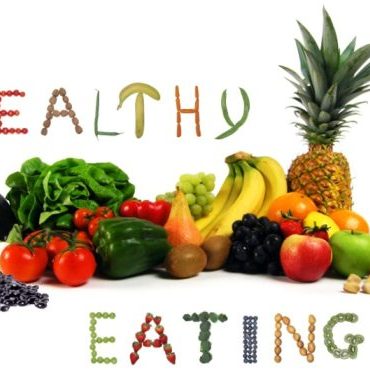3,022
 Arlene Normand, a dietitian, has built a strong business over ten years dealing with thousands of clients from all walks of life with a common goal – to lose and maintain weight loss.
Arlene Normand, a dietitian, has built a strong business over ten years dealing with thousands of clients from all walks of life with a common goal – to lose and maintain weight loss.
I am a coca-cola addict. I have been told to lose weight by my doctor as there is a history of diabetes in my family. I am struggling to drop even a kilo. I even have coke for breakfast! Help!
One tin of coke has approximately 15 teaspoons of sugar – empty calories with no nutritional value at all. You have to go cold turkey and cut coke out completely. You will get headaches, and possibly the jitters to begin with.
These sugar and caffeine withdrawal symptoms will pass. Replace coke with water, non-fat milk or mineral water. Increased physical activity will help you relax. Sugary cold drinks have been implicated for a long time in obesity.
A major study at Harvard University examined the eating habits, weight, and physical activity of more than 51000 female nurses for eight years found that women who had one or more sugary soft drinks a day were twice as likely to develop diabetes type 2. You have to be strong and determined to kick the habit! Replace just two tins of coke with water to save approximately 300 calories, and you could lose up to 15kg in one year.
I am struggling to lose weight. I am good all day but overeat after dinner. I actually feel bloated whenever I get into bed. I am so disillusioned with myself.
Fatigue is a common trigger for overeating.
When you are aware of this you are more able to overcome it. People seldom gorge in the morning when they wake up as their resolve is much stronger. “Nighttime eating syndrome” is a path to obesity and you have to put an end to it.
Ensure you have sufficient to eat throughout the day. Make a rule that the kitchen is closed after dinner. Go for a walk after the evening meal, do some handwork (tapestry, knitting, cross stitch) while watching television, or even do a jigsaw puzzle. Giving yourself a manicure is a perfect solution to stop eating. Brush your teeth after dinner so your mouth feels fresh and you do not need to brush it if you start snacking. Do not keep snack foods in your home as they offer an unnecessary temptation.
I suffer from such heartburn. It burns all the way up my chest. Can you give me any suggestions?
Heartburn is a burning sensation that moves from the abdomen up into the chest and oesophagus. When the problem becomes persistent and frequent it is called gastroesophageal reflux disease. A valve that lies between the oesophagus and the stomach doesn’t close properly, and as a result, acid flows from the stomach into the oesophagus.
This can lead to symptoms of heartburn. Being overweight or pregnant increases your risk of developing reflux because the extra kilos exert additional pressure on the stomach. You generally have to make lifestyle changes to prevent reflux. Losing weight, avoiding large or high-fat meals, and quitting smoking, are recommended. Often you might need acid-blocking medication – eg. Zantac, Tagamet, Pepcid, which are available over the counter.
If these don’t help you might need prescription medication like Nexium. Avoid eating late at night or lying down within three hours of a meal. Eat slowly, and steer away from potential irritating foods such as chocolate, coffee, peppermint, alcohol and spicy foods.
Is it good to eat before or after I go to the gym for a workout?
The answer to this question is really up to the individual, the intensity and the length of the workout. Theoretically, if you want to burn fat it is best to exercise in the morning before you have eaten as the body has to use fat as a source of energy rather than the glucose from the food you have just consumed which is in your system. However, some people feel they need to fuel up before a workout so that their blood sugar level is up and they can do a harder session.
Others find they feel bloated, get cramps or may feel nauseous if they eat before a workout. A carbohydrate snack of about 200 calories approximately an hour before a workout was found to improve the performance of cyclists before an hour-long training.
Good snacks include bananas, oats, cereal, toast, crackers and pretzels. A snack with protein and carbohydrates is recommended after exercise, such as yoghurt, nuts and raisins, peanut butter on toast for glycogen to be restored in the muscles and tissues to be repaired. The snack after exercise also helps you from getting ravenously hungry a few hours after training.
I like to drink on the weekends and want to know how the different drinks compare as far as fattening is concerned – beer, wine, mixed drinks? I like beer the best and am watching my carbohydrates so would like to know if the beer has simple or complex carbohydrates?
Beer has mostly complex carbohydrates, but this does not mean it is classified as being healthy and nutritious as it does not have vitamins, minerals, fibre, protein, or fat. Beer might be made from barley, but it definitely does not have the nutrient content of barley soup.
400g can of beer contains about 140 calories and light beer has about 100 calories. Mixed drinks have the highest calorie content. A Margarita or daiquiri has about 300 calories, while a pina colada has about 520 calories. 150 ml of wine contains between 110-120 calories. Red wine contains a few more calories than white wine. A 45g shot of hard liquor has 90-120 calories.
Never forget that the calories from alcohol are empty of nutrients. It is not advisable to drink more than two drinks a day (and these are not cumulative), with at least two alcohol-free days a week.




